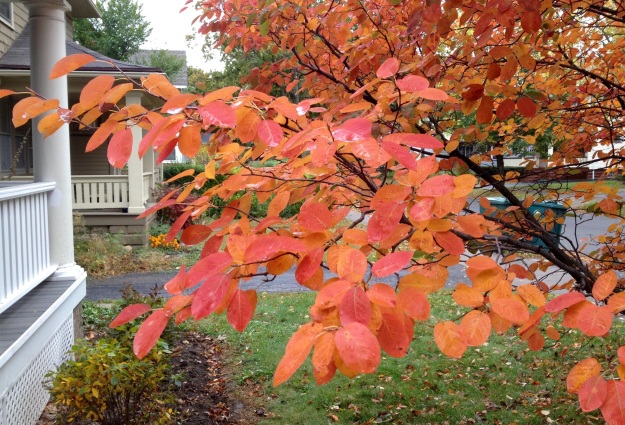Suddenly, this week, the Juneberry in my front yard decided it was time to turn orange.
I don’t know why more people don’t grow this robust and lovely native, Amelanchier canadensis. Glowing scarlet and orange leaves in autumn, a cloud of white flowers in early spring that provide nectar for pollinators when little else is in bloom, and sweet fruit for birds and people in the summer. What could be better? 
This spring, I caught two little girls grabbing handfuls of berries from the bush in my front yard when the fruit was still red and tart (just as this Cedar Waxwing did in May). I promised the girls they could pick lots of berries if they would only wait for a week or so, until they were ripe, and ask me first. The girls agreed and zoomed off on their bicycles. Weeks went by. The birds and I gorged on sweet, dark berries until they were all gone.
About a month after the last fruit had fallen, the girls showed up again in my yard. “Where are the berries?,” they asked. “You said we could eat them.” They looked up at me with wide eyes, gaping in amazement, when I explained that they were too late, and would have to wait for another spring for the plant to bloom and set fruit. This might have been their first encounter with the connection between food we eat and the cycle of the seasons.
This small woodland tree or shrub is also called Shadblow, because it blooms in early spring when the shad run up wild rivers from the Atlantic to spawn.